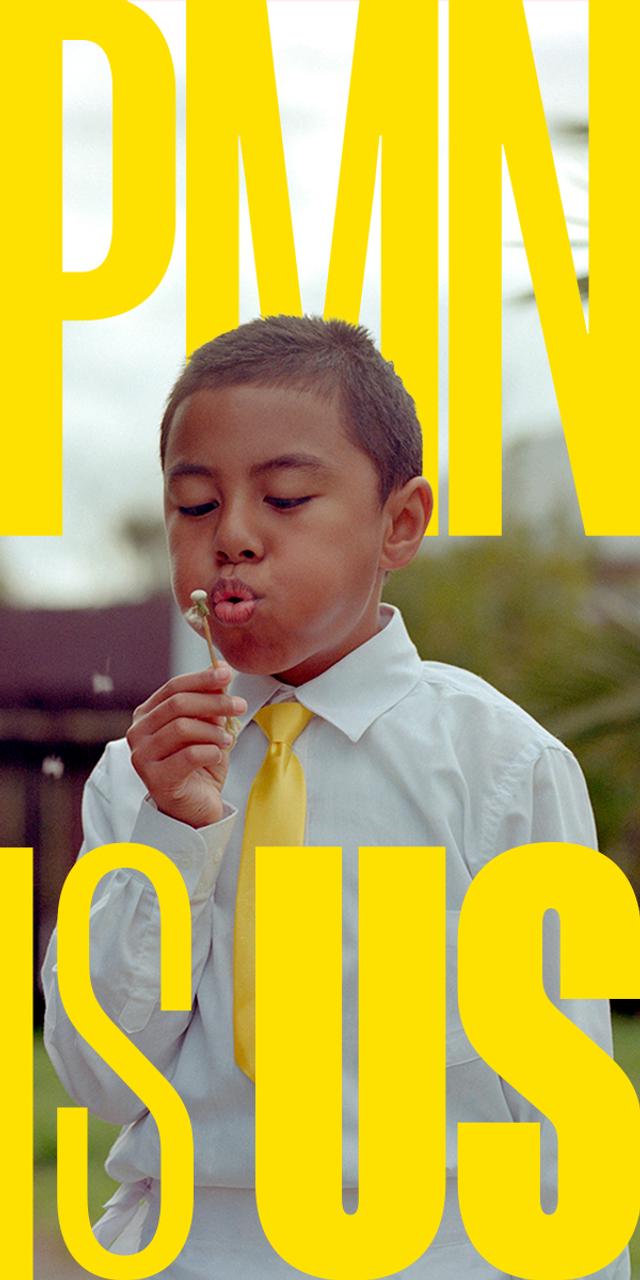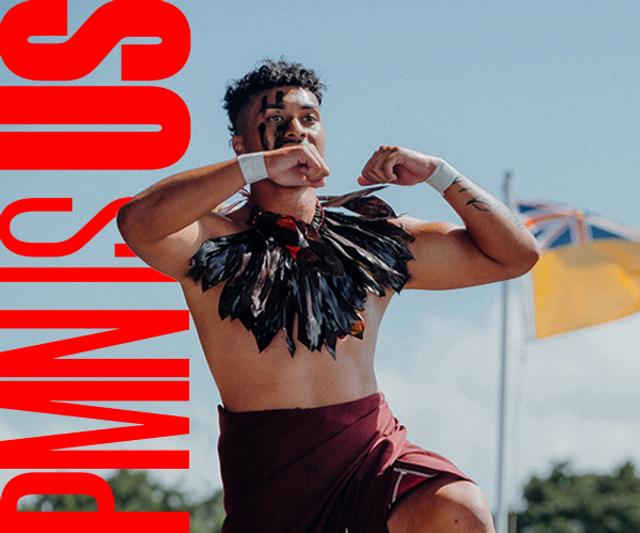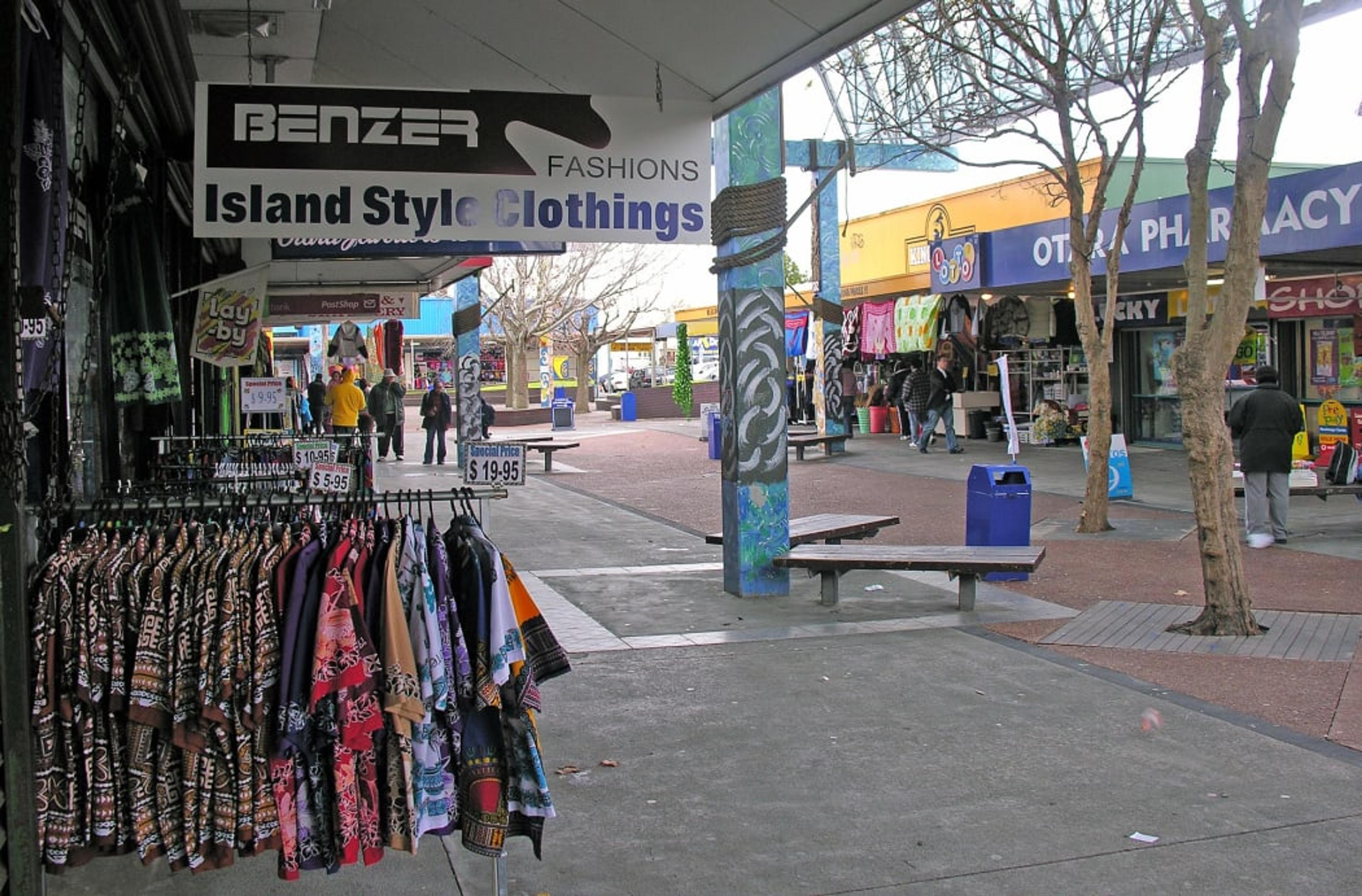
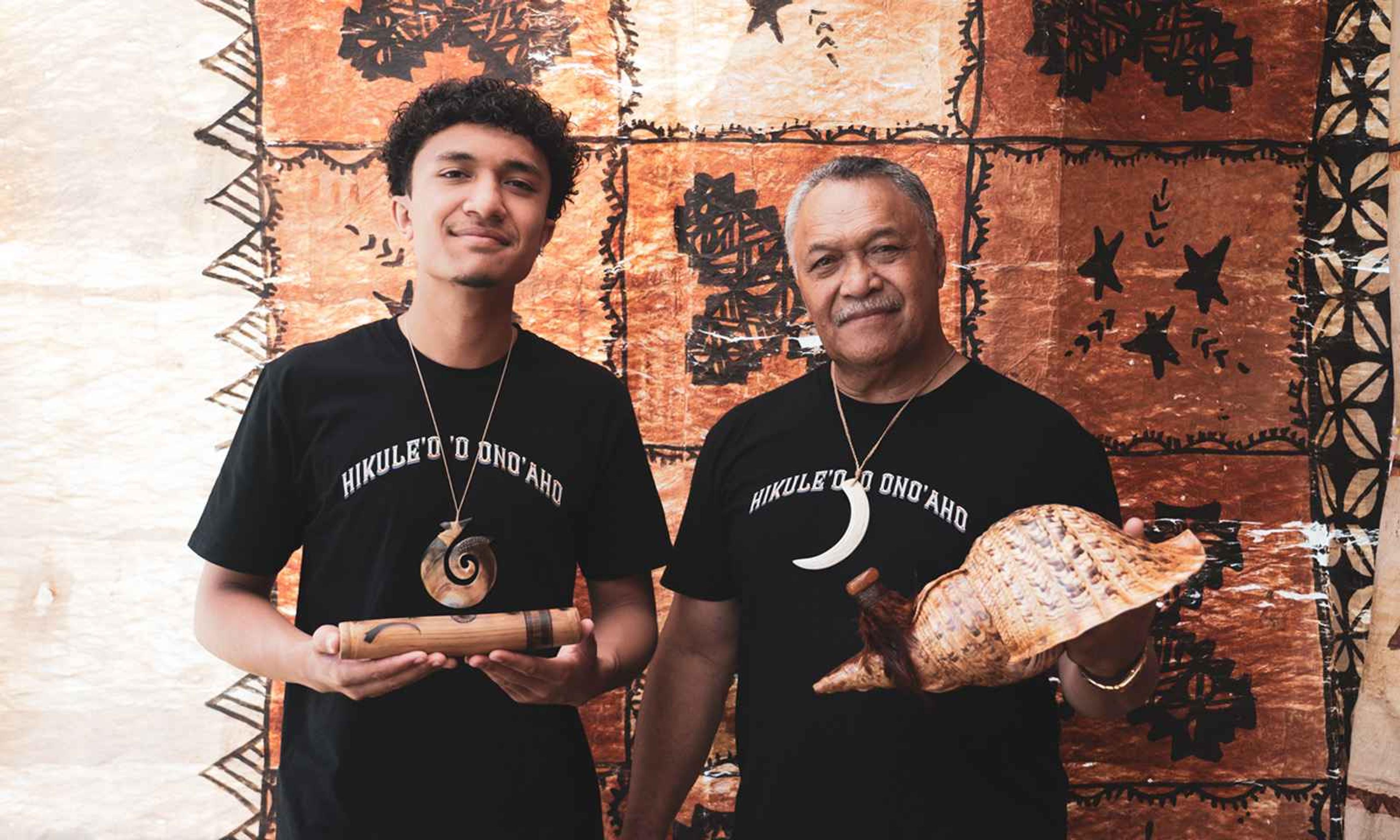
Tu’ifonualava Kaivelata and his son ‘Uluaki Kaivelata with some of the instruments they use.
Photo/ PMN News
How Captain Cook’s sketches are helping to revive ancient Tongan instruments
A Tongan artist is combining his skills as a cabinet maker and his passion for music to revive the art of ancient Tongan instruments.

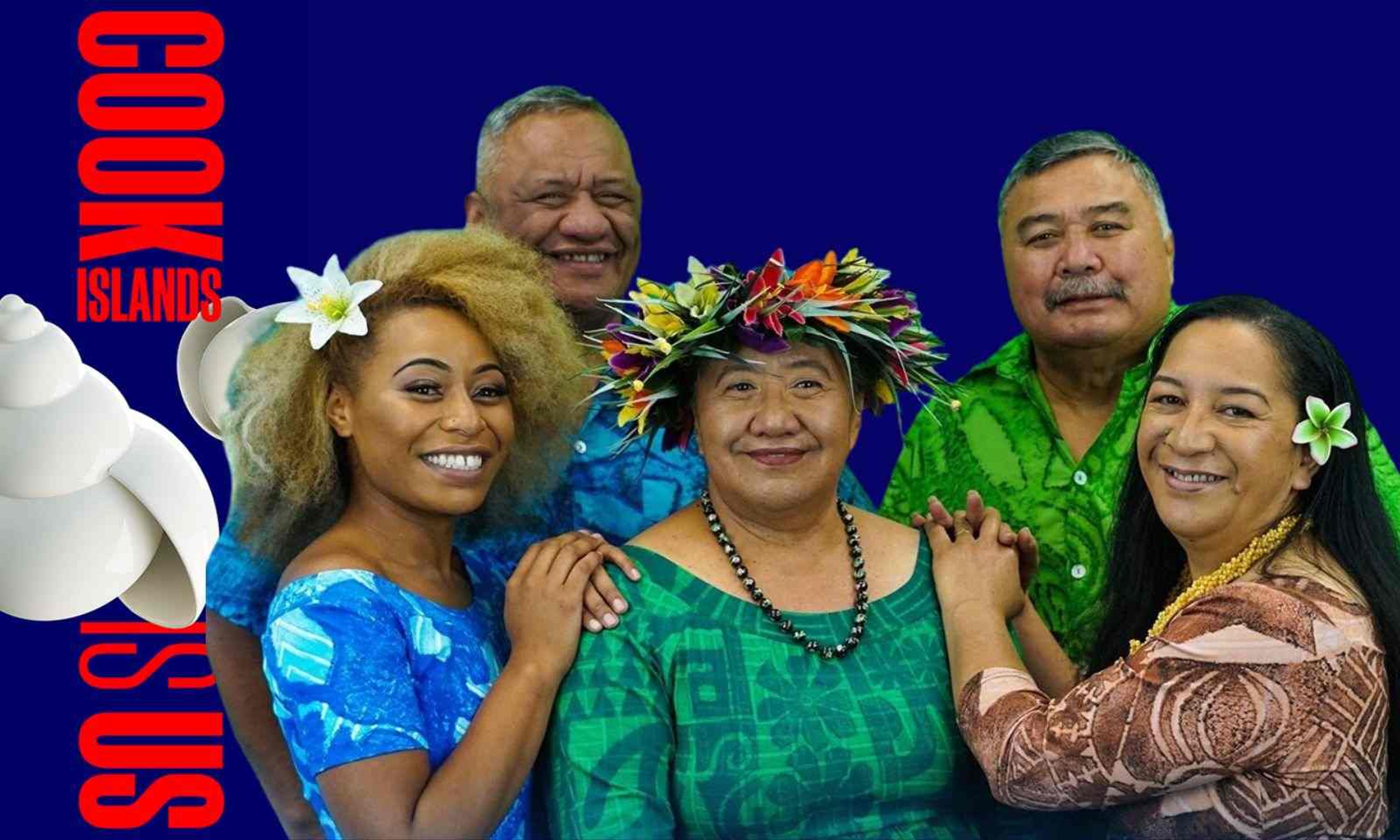
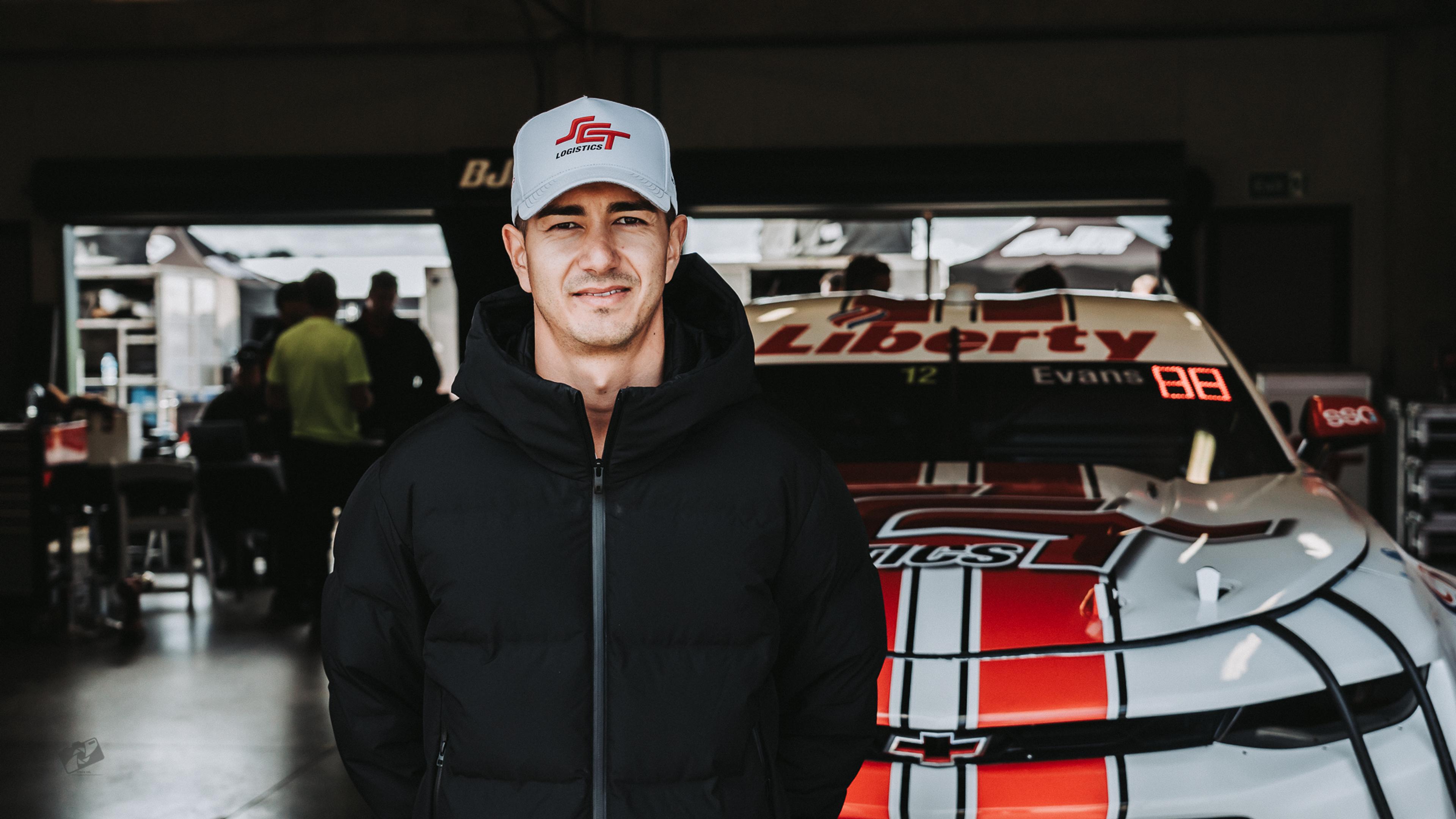
Fijian-Rotuman becomes first ever V8 Supercar driver of Pacific heritage
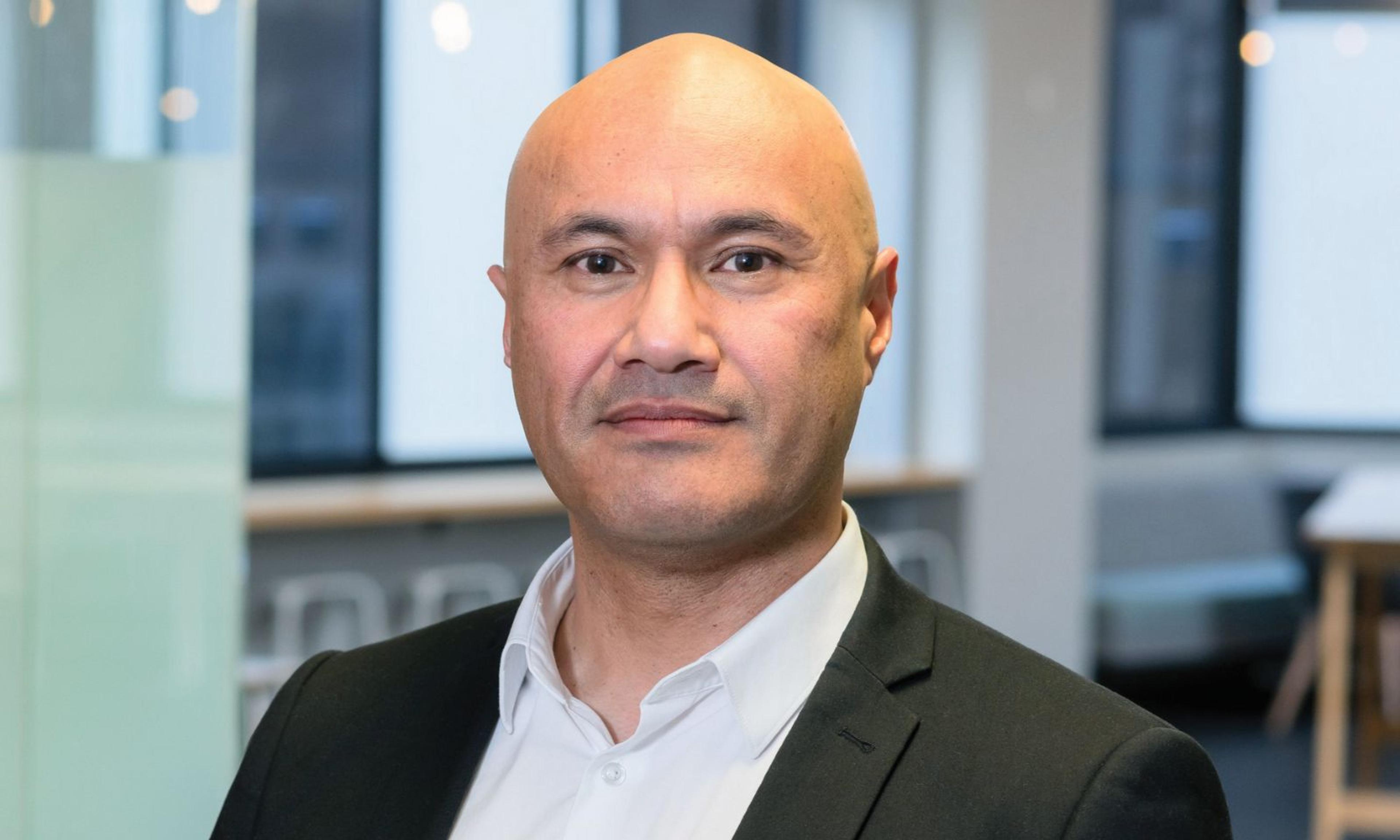



Fijian-Rotuman becomes first ever V8 Supercar driver of Pacific heritage

An artist is reviving ancient Tongan instruments through sketches from Captain Cook’s Pacific expedition.
Tu’ifonualava Kaivelata says his curiosity in ancient Tongan instruments began when he joined a music group to play the fangufangu or the Tongan nose flute on a trip overseas.
“Ō ‘osi emau ki’i fōlau, nau foki mai ‘o kamata leva eku māhu’inga ‘ia ‘ihe me’a koeni oku teuteu mōle.”
[Translation: After returning from our trip, I began to value the art that was almost going to be extinct.]
From there, Tu’ifonualava used his skills as a cabinet maker and sought out drawings of John Webber who accompanied Captain Cook on his third Pacific expedition.
He remade ancient Tongan instruments such as the lali (wooden drum), tukipitu (bamboo stamping tubes) and mimiha (pan pipes) using Webber’s sketches as a guide.
“Koe artist ko ia a Captain Cook, John Webber. Na’e ‘i ai ene ki’i sketch oe lali oku asi i ai… Pea ko eku sio ia ihe ki’i fo’i sketch koia na’e fai ihe artist. O fakatokanga kihe anga kiai oe toka ae lali. Peau hanga leva o ngahi ia koe ngahi pe o vakai’i ke sio pe koe ha me’a oku hoko ai. He teekeu sio au iha lali pehe.”
[Captain Cook's artist, John Webber had a sketch where he drew a lali... When I saw the sketchthat Webber drew, I was drawn to how it was placed. I then remade it as a prototype. I had yet to see a lali such as that one.]
Tu’ifonualava says he initially struggled to find information about the traditional instruments of Tonga when he travelled to the Kingdom, as the art was out of practice.
He eventually resorted to gathering information from records written by Richard Moyle, Webber and a few Tongan sources.
After a decade of research, Tu’ifonualava has gone on to pass his knowledge to others including his son ‘Uluaki Kaivelata.
They’ve also started their own group, Hikule’o O Ono ‘Aho, which means "the tail end sound of the past".
‘Uluaki says: “I was around eight or nine and I’d come home and I’d see my dad in the lounge just tutuing around with these instruments that I’ve never seen before and that’s where my interest was sparked.”
He says through learning traditional instruments such as the fangufangu, he got to participate in a prestigious Tongan ceremony called the fakatakatōfā.
“I was 14 at the time and I performed with my father and other members of my village [Kanokupolu].”
The ceremony’s purpose is to awaken Tongan royalty with the sound of the fangufangu.
One of the last times it was performed was during Queen Elizabeth II’s visit to Tonga at the Palace in 1953.
“Having the opportunity is once in a lifetime experience to go into the palace and carry out this duty that my forefathers have done before me,” ‘Uluaki says.
Tu’ifonualava hopes his work studying the art of ancient Tongan instruments will sustain the art for future generations and is participating in a SOUNZ documentary about extinct instruments of the Pacific which will be released in July.
“Na'u kamata me ihe hala ata atā nae ikai keu ilo ki ai. Kā mahalo oku ou fiefia he koe ako leleitaha ia kia au. Ke oua teke alu o ako me i ha taha. Ka ke fakataha'i ae u fakamatala ko eni o tekamata pe me i a kita. Nae kamata pehe eku fakatokanga mo hoku mahuinga'i he kuoufakatokanga'i hake, kapau he ikai fai ha tokanga kiai ihe taimini. Oku ikai keu loto ke ha'u ae to'utangata hoko o toe fou ihe faingata'a ko eni.”
[I started with no resources or knowledge to begin with. But reflecting back, that's the best method of learning in my view. To not learn from just one person but to gather all the different sources of information and start with what you have collected. That's how I began to value the knowledge I had gathered which was important so the next generation don't have to go through the struggle I went through.]
